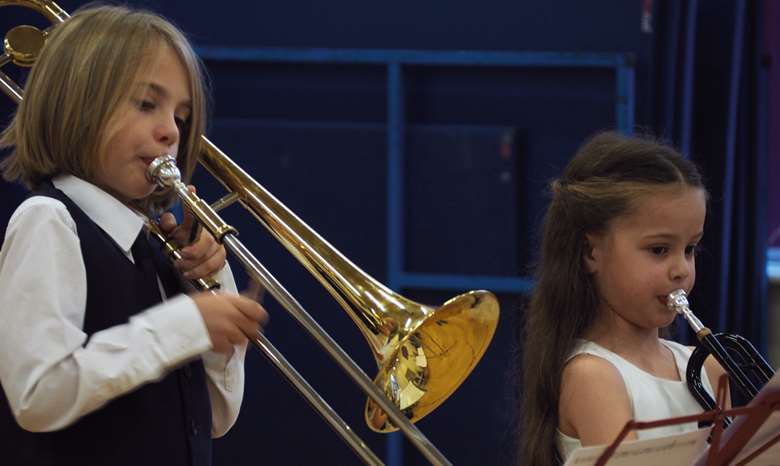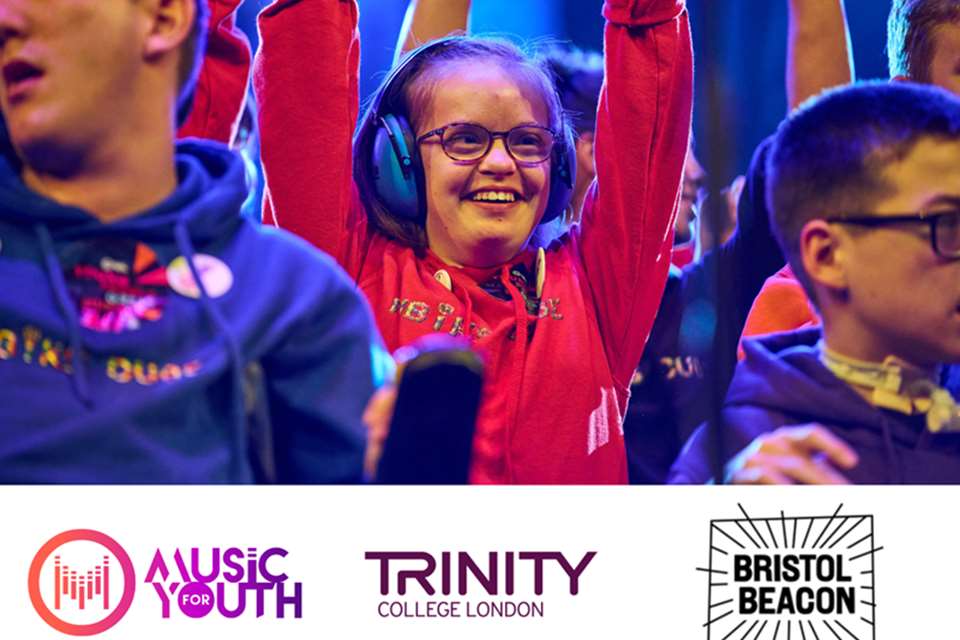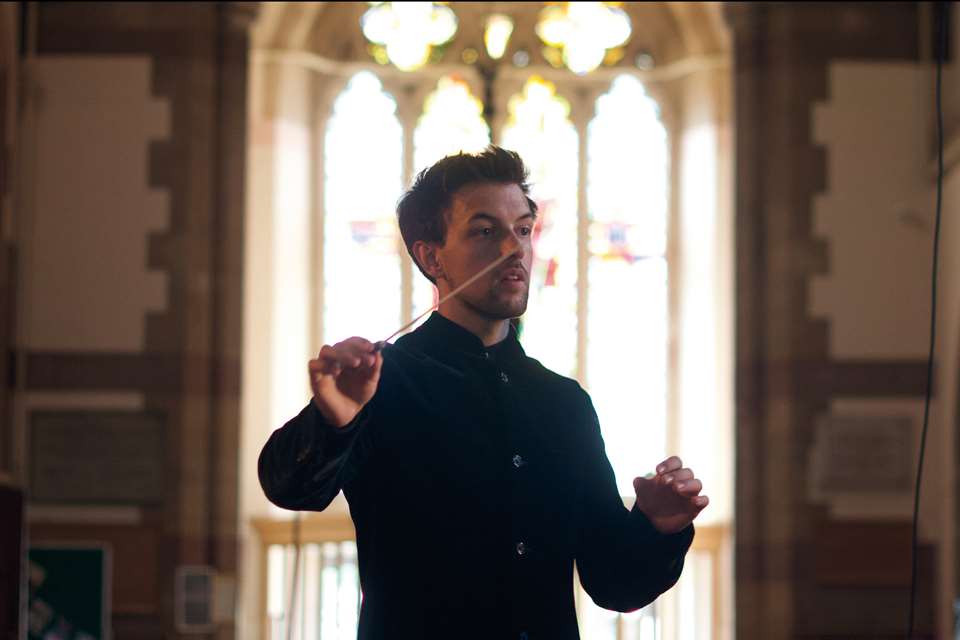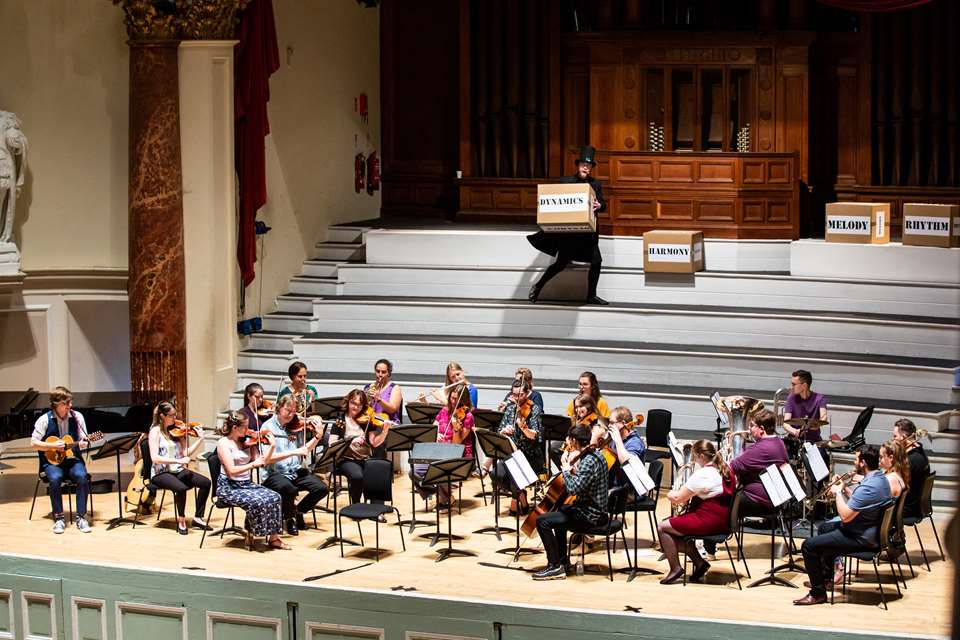Local music festivals: untapped performance opportunities?
David Barton
Monday, April 1, 2024
Music educator and consultant David Barton reports on the work of music festivals and their potential for learners at various stages.

Clementine Barton
Like many, when I was learning an instrument as a child, I was brought up on a diet of graded music exams. Solo performance opportunities were, for me, like many, limited to school concerts, and getting a slot in one of these was never guaranteed. But I realise now that while that was my world, others will have journeyed through the syllabuses and classes of their local music festivals. As a teacher, I had no experience of these festivals until I was asked to accompany a student at one about a decade ago. I was encouraged to get involved, and for the past eight years I have been the secretary for the Lichfield Festival of Music. But what are these festivals about, and what, as teachers, can they offer us and our students?
Types of festivals
The British and International Federation of Festivals for Music, Dance and Speech (‘BIFF’ in short) has been supporting amateur performing arts festivals for over a hundred years. Not every festival is affiliated to BIFF, and there are many excellent independent ones; but with over 250 member festivals, it's a good place to start if you'd like to find out about festivals near to you. Above all, festivals seek to provide performance opportunities for amateur musicians, and to provide a focal point for the amateur arts within the local community.
It's important to note that each festival is different. Some festivals are small, running over just a day or two each year, while others can run over several weeks across multiple venues. Some festivals are purely about musical performance, while others might incorporate classes for dance, speech and drama. While many festivals have a competitive element, there has been a move towards emphasising non-competitive participation too. Now, a number of festivals are introducing non-competitive classes, and some run entirely without a competitive element.
If you've previously had no experience of local festivals, it can seem daunting. I know that in the few years before I joined the committee and was entering my own students, the whole process felt a bit of a mystery. For many of us, as students and as teachers, our focus has been on graded exams, and while there are some similarities, festivals offer something quite different. I would be the first teacher to hold my hand up and say it took me a few years to understand fully how the festivals worked and, indeed, how to ‘sell’ them students.
Organisation and positivity
Most festivals issue a syllabus divided into ‘classes’. These classes can be for different age groups, instruments and even styles of music. Some festivals prescribe set pieces, while others offer free choice. Some festivals even group entries by exam-grade level, though this is less common than it used to be. Many festivals award certificates for first, second and third place, while some give certificates of participation. Some festivals award trophies, many of which are sponsored by local businesses and organisations. There really isn't a one-size-fits-all approach, but in many ways that should be seen as a positive, for each and every entrant comes with different aims, goals, aspirations and experiences. Above all, however the festival is organised, I think we'd all agree that the emphasis is on participation, performance and enjoyment. Beechwood A Capella Community Choir (class: senior choirs), Lichfield Festival of Music, 2023
Beechwood A Capella Community Choir (class: senior choirs), Lichfield Festival of Music, 2023
Festivals generally appoint an adjudicator to preside over each class or section. The adjudicators are all experienced musicians, many of whom are working at grass roots level, and as part of their role they offer both general and individual feedback on performances. While some are excellent generalist adjudicators, a lot of festivals favour specialists for each section. Perhaps this is one of the major differences between festivals and many graded exams, where feedback is often fairly general and given by generalist, albeit experienced, examiners.
The specific feedback which adjudicators offer at the end of festival classes is, in my experience, hugely valuable. It can often be very detailed, highlighting some quite specific points of note. That said, adjudicators and indeed the whole festival community want to encourage performers of all ages and levels, and there's a real sense of positivity.
Shared experience
In graded music exams, students are used to performing on their own, to one examiner, which is inevitably an artificial situation. While most festivals can never recreate the full public performance experience, they do offer performers an opportunity to play or sing to more people. Audiences can be made up of the adjudicator, festival volunteers, parents, friends, families, teachers and, of course, other performers. This is a key point for me, because festival performances are very much a shared experience. While each entrant can learn a lot from their own performance and associated feedback, there's also a huge amount to learn from watching others perform. As a festival volunteer, it's always a joy to see performers sharing their experiences, congratulating each other, and, quite often, making new musical friends. These are opportunities which are not always easily accessible to many learners.
One of the things which often puts people off festivals is that they are seen as vehemently competitive. As I mentioned earlier, not all festivals are competitive, and even for those that are, I'd like to think that the emphasis is placed far more on the experience of performing than on the winning. But it is fair to say that some festivals are more competitive than others, so if, as a teacher, you're looking to enter your students, you should find out about your local festival and, if possible, go along and watch, and maybe even get involved behind the scenes.
Other benefits
It's perhaps unfair to labour the graded exam comparison, but it is worth noting that when compared side by side, participation in festivals is welcomingly cost effective. Entry fees vary but can often be a fraction of the cost of an exam. Clearly, I'm not comparing like-for-like, but in a cost-conscious world, I'd like to think festivals have something to offer to those for whom exams are no longer affordable.
I'd also like to take this opportunity to highlight the way in which festivals provide for an ever-increasing number of adult learners. Many adult learners have no access to performance opportunities, and, often, little opportunity to meet other students. I know that we, and others, have seen an increase in adults entering our festivals, and it's lovely to see how these provide a focal point for them each year. Many return year-on-year where they meet up with old friends, and make new ones. As festival organisers, we're continually looking to explore how we might meet the needs of adult learners as we take our events forward.
The workforce
Almost all our local music festivals – and there are many in the UK and overseas – are run entirely by volunteers. Without the volunteers who work behind the scenes to organise, oversee and run the events each year, festivals wouldn't be possible. Collectively, we continue to consider how festivals may grow and develop in the future for a new generation of amateur musicians. It goes without saying that almost all festivals are continually in need of more volunteers to secure their continuation in the future.
I can't speak for all festivals, but I'm sure many also welcome input and ideas from teachers. Teachers are often the ones who know their students best, and most festivals would love to hear how they might meet the needs of future generations of learners and musicians.
The community
For students and, indeed, teachers, embarking on the journey of entering a local musical festival can understandably cause some anxiety. This is particularly the case where many festivals have been established for a good number of years, and where it can be easy to think you're the only one who doesn't know what they're doing. I felt like that, and I strongly believe that festivals have a duty to be welcoming of new entrants, their teachers and families. Why not get in touch with your local festival to find out more? I know that they will always be happy to answer any questions you have, and even guide you through the whole process.
Your local festival may provide just the focal point to encourage your students to gain experience performing; but, above all, to be part of a richly encouraging and positive community of amateur musicians.




